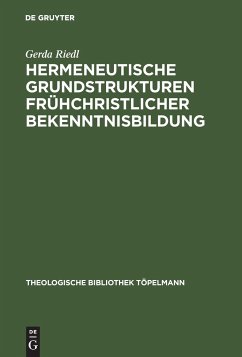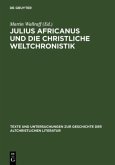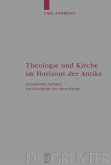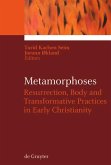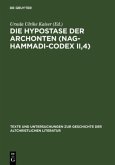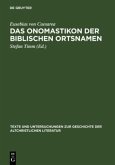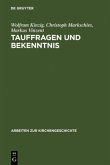The emergence of the Christian creed and its fixation in dogma understood as formulaic abridgments of key articles of faith were completed no earlier than the beginning of the seventh century. Whereas the rise of the creeds' basic hermeneutic and generative structures has traditionally been studied with the history and relationships between texts and meanings in mind, this book inquires into the motives behind the creeds' formation. This approach reveals that the inception of the creed in early Christian times grew out of a clear emphasis on the history of God's saving acts in creation, redemption, and fulfillment.
Der Prozess der Entstehung und dogmatischen Fixierung christlicher Glaubensbekenntnisse (Kurzfassungen zentraler Glaubensinhalte wie im Apostolicum, Nicaeno-Konstantinopolitanum u. a.) ist frühestens zu Beginn des 7. Jh. abgeschlossen. Bisher v. a. unter ereignisgeschichtlich-genetischen Gesichtspunkten (Text- und Sinnabhängigkeiten) untersucht, geht diese Arbeit den hermeneutisch-generativen Grundstrukturen des Bekenntnisbildungsprozesses nach (Beweggründe). Dabei zeigt sich ein eindeutig heilsgeschichtliches Anliegen frühchristlicher Bekenntnisbildung: die Selbst-Erschließung Gottes zwischen Schöpfung, Erlösung und Erfüllung.
Der Prozess der Entstehung und dogmatischen Fixierung christlicher Glaubensbekenntnisse (Kurzfassungen zentraler Glaubensinhalte wie im Apostolicum, Nicaeno-Konstantinopolitanum u. a.) ist frühestens zu Beginn des 7. Jh. abgeschlossen. Bisher v. a. unter ereignisgeschichtlich-genetischen Gesichtspunkten (Text- und Sinnabhängigkeiten) untersucht, geht diese Arbeit den hermeneutisch-generativen Grundstrukturen des Bekenntnisbildungsprozesses nach (Beweggründe). Dabei zeigt sich ein eindeutig heilsgeschichtliches Anliegen frühchristlicher Bekenntnisbildung: die Selbst-Erschließung Gottes zwischen Schöpfung, Erlösung und Erfüllung.
"Eine äußerst anregende Studie, die allein schon durch die breite Rezeption unterschiedlichster fachwissenschaftlicher Diskussionen besticht, mit ihrer Präzisierung der Begrifflichkeit und ihrer Hinwendung zur theologischen Durchdringung frühchristlicher Bekenntnisbildung vor allem jedoch einen anregenden Neuansatz der Symbolforschung bietet."
Jennifer Wasmuth in: Theologische Literaturzeitung 10/2006
Jennifer Wasmuth in: Theologische Literaturzeitung 10/2006

